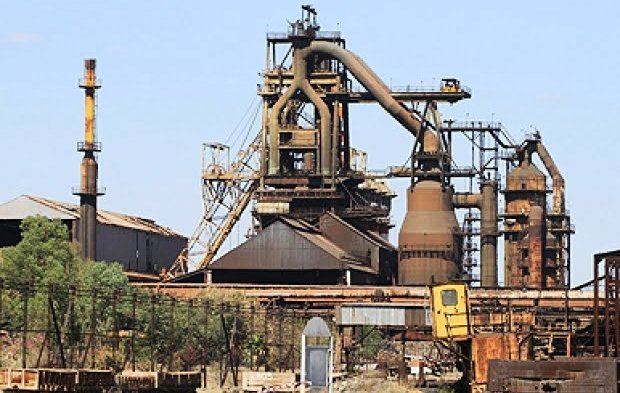
A report the other day that the Federal Government was ready to offer the Ajaokuta Steel Mill for sale to finance 2018 budget is curiously casual and contemptuous. According to the report, the proposed sale would be in accordance with the privatisation policy of the government, which began 23 years ago. There is indeed a sense in which people of this country can say the privatisation policy of the Federal Government, which began with Privatisation and Commercialisation Act of 1988, which later set up the then Technical Committee on Privatisation and Commercialisation (TCPC) chaired by Dr. Hamza Zayyad. In 1993, the TCPC concluded its assignment and submitted its final report. The committee’s recommendations led to the setting up of the Bureau of Public Enterprises (BPE) Act of 1993, which repealed the 1988 Act.
In the present case, while some have questioned the rationale for the proposed sale of what is regarded as a landmark project upon which Nigeria’s much-touted industrialisation is based, others have thought that the more than three decades of the projects existence without adding value to the economy is enough reason to privatise or sell it.
But given the critical role Ajaokuta was supposed to play as the bedrock of industrialisation in Nigeria, government should not sell the critical national asset casually without involving critical stakeholders and the people’s representatives.
The Ajaokuta Steel Project has for years remained as a white elephant, swallowing billions of our scarce resources in project funds without benefit to Nigerians. Besides, the project has become a cesspit of corruption from dispensation to dispensation. It has been concessioned to shadowy foreign and local firms under dubious conditions several times. So many probe panels have been constituted to probe the scandal called Ajaokuta. Even the House of Representatives, not too long ago reportedly indicted an immediate past minister of Mines and Steel Development who refused to appear before the House. The indicted minister has since been sworn in as a governor who now enjoys some immunity.
What is more, it was only recently that the Ajaokuta Steel Complex was reverted to the Federal Government, effectively freeing the entity from all contractual encumbrances that had left it uncompleted and non-functional for decades.
The company had been concessioned to the Global Steel Holdings Limited (GSHL) for the Nigerian Iron Ore Mining Company (NIOMCO), Itakpe. But even after the ownership was reverted, the GSHL still retains NIOMCO.
And so for whatever it is worth, the sale of Ajaokuta is long overdue. But the sale must be transparent, especially as history of privatisation in the country has been disastrous. Besides, we do not believe that the proceeds should be used to fund deficit budgetary provisions. Such proceeds should be used to fund projects Nigerians should directly benefit from, not the ones to satisfy the greed of the power elite and their cronies.
This newspaper is persuaded that selling a huge national asset like Ajaokuta Steel Company just for the purpose of financing one budget thoughtless and uninspiring. It shows that government is merely selling by intuition. Something more strategic is needed to create a financial base that would be used to finance budgets rather than depending on national assets.
The Governor of the Central Bank of Nigeria (CBN), Godwin Emefiele, who disclosed the deal in far away Bali, Indonesia while briefing the Nigerian delegation at the end of the International Monetary Fund/World Bank Group Meetings, revealed that more assets were in the offing for sale.
Speaking as a member of the National Council on Privatisation (NCP) the CBN chief executive said, in due course, the Bureau of Public Enterprise (BPE) would make available the list of assets to be privatised. This is yet another warning signal that the current administration is at its wit’s end about management of the economy. And that is dangerous for the economy that is already facing some stress.
The other day, the Nigerian Security Printing and Minting Company Plc was offloaded, with the Central Bank of Nigeria (CBN), which already has a majority stake, emerging as the preferred buyer given the company’s security status.
There have been dark hints about a bid to sell the uncompleted Brass LNG Company too. The government’s inability to get the Brass LNG project in Bayelsa State, to come on stream nearly 15 years after it was initiated, is robbing the country of over $24 billion in estimated revenue, as well as, about 18, 000 jobs. This is very sad.
It is regrettable that as a result of blatant mismanagement of national assets, it gets to a point when the country is caught in a dilemma of not knowing whether to hang on to unproductive assets that constitute drainpipes of scarce resources.
Unfortunately, Nigeria’s recent experience with some privatisation has not been encouraging, as was earlier hinted. The experience with the power sector as it applies to the GENCOs and DISCOs is disheartening. The Lagos-Ibadan Expressway failed concession is another bad another example. These and the other privatised assets were sold without proper due diligence. Specifically, the power sector privatisation has become a huge failure, as buyers have proved incapable of managing the legacy companies they purchased from Power Holding Company of Nigeria (PHCN) in 2014.
That is the reason why relevant authorities should be vigilant this time before the Ajaokuta Steel Mill is privatised. There should be due diligence to ensure that the buyers have enough capacity and resources to complete the project and make it functional – to fulfill its original purpose for the nation.
END

Be the first to comment